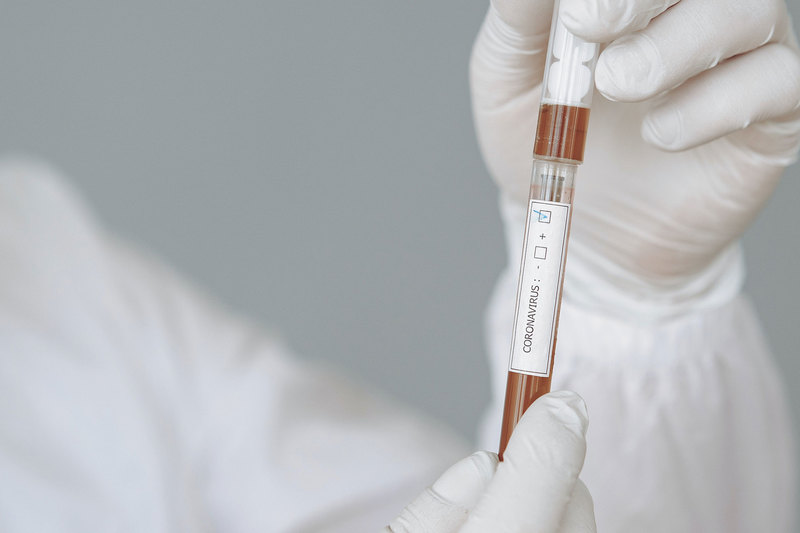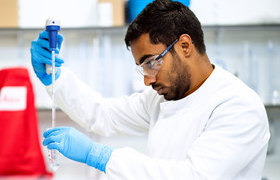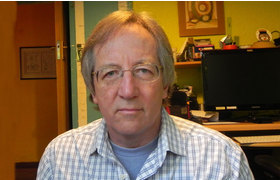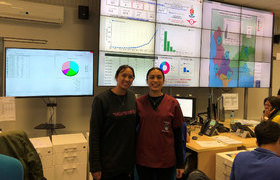UCT forms COVID-19 Research Task Team
24 April 2020 | Story Niémah Davids. Photo Pexels. Read time 6 min.
The Faculty of Health Sciences (FHS) at the University of Cape Town (UCT) has established a special COVID-19 Research Task Team to act as the official voice for COVID-19-related research projects and other interrelated functions in progress in the faculty.
Chaired by the FHS’s Deputy Dean of Research, Professor Ambroise Wonkam, the task team also comprises other senior academics in the faculty in the fields of infectious diseases, medical virology, human biology and public health and family medicine.
The task team was formed as a subgroup of a broader group of academics, convened by the Dean of Health Sciences, Professor Lionel Green-Thompson, to coordinate teaching, clinical services, administration and social responsiveness initiatives.
Director of Research at the FHS and research task team coordinator, Dr Yolande Harley, said that following the outbreak of COVID-19 in South Africa and the subsequent lockdown, staff in the faculty received many requests for information about how research should be managed, how researchers could get involved with COVID-19 projects and the “rules” around COVID-19 research in particular.
“It is important that information shared with our researchers and other UCT staff is reliable, informed and consistent.”
It became clear that a research-specific task team was essential to support the faculty’s response to the spread of the pandemic in South Africa through a range of research areas and related activities, in order to communicate effectively with the faculty and the wider university community.
“It is important that information shared with our researchers and other UCT staff is reliable, informed and consistent. We felt that it was important to convene a COVID-19 Research Task Team to meet the proliferation of needs with respect to research-related information at this time,” Harley said.
The task team’s first priority was to establish the faculty’s approach to research-related activities during the pandemic. The document summarises key points, which include prior COVID-19 communication, and provides additional information to “ensure appropriate research practice”. The summary consists of several topics relevant to the FHS research community, including research involving human participants, animals, laboratories and COVID-19-specific research, among other things.
Multipronged research approach
Research into COVID-19 currently underway, or in advanced stages of planning in the faculty, aims to understand a combination of primary, secondary and tertiary interventions to achieve “a meaningful degree of protection” against the disease.
Primary interventions refer to those that prevent patients from contracting the disease, supported by research on vaccine development. Secondary interventions involve detecting the disease and preventing it from exacerbating, supported by research on diagnosis tools, screening strategies and pathogenesis. Tertiary interventions concentrate on how to manage the disease and involve research on how to treat COVID-19 complications like cardiovascular, neural and respiratory problems.
Behind the scenes
Harley said that there’s been a hive of research activity progressing behind the scenes (while adhering to lockdown regulations). Each area, while different, has one common goal – to contribute to better managing the pandemic in the country and coming up with ways to deal with other future outbreaks.
“Quite a number of research groups in the FHS are planning and progressing [on] research projects that focus on the COVID-19 pandemic,” she said.
“These studies are tackling a range of challenges related to the virus and the disease it causes.”
Treatment trials
She said researchers are attempting to understand the process in which the virus spreads in the country, as well as how susceptible South Africans, including those infected with HIV and tuberculosis, are to COVID-19.
“They [researchers] are investigating diagnostics and potential tests of immunity, as well as developing vaccine candidates and laboratory reagents.”
Researchers are also studying the pathogenesis of SARS-CoV-2 (severe acute respiratory syndrome coronavirus 2 – the medical name of the coronavirus that causes COVID-19) and the immune response to the virus.
“They [researchers] are investigating diagnostics and potential tests of immunity, as well as developing vaccine candidates and laboratory reagents,” Harley said.
In addition, researchers are also involved in coming up with therapeutic treatment trials for COVID-19 patients and are hard at work developing medical devices to help manage the pandemic.
“This work looks to understand how this virus makes people ill, treating them and how we can prevent them from getting sick, and, importantly, how relevant it is to our communities in South Africa and Africa more broadly.”
Strict guidelines
Because research on COVID-19 and the virus that causes it, SARS-CoV-2, has been deemed “essential” by UCT, research is allowed to continue during lockdown, but under strict regulations.
Harley explained that all scientific research projects that carry biosafety implications are reviewed and approved by the Faculty Biosafety Committee (FBC). The FBC has since developed specific COVID-19 research guidelines.
“For best practice, the guidelines were developed for studies that aim to work in the laboratory with the SARS CoV-2 pathogen; with environmental specimens like wastewater, which may contain the virus; and with infectious materials (such as blood samples) from COVID-19 patients.”
The FBC guidelines are based on best international practice from organisations that include the United States Centers for Disease Control and Prevention and the World Health Organization.
 This work is licensed under a Creative Commons Attribution-NoDerivatives 4.0 International License.
This work is licensed under a Creative Commons Attribution-NoDerivatives 4.0 International License.
Please view the republishing articles page for more information.










